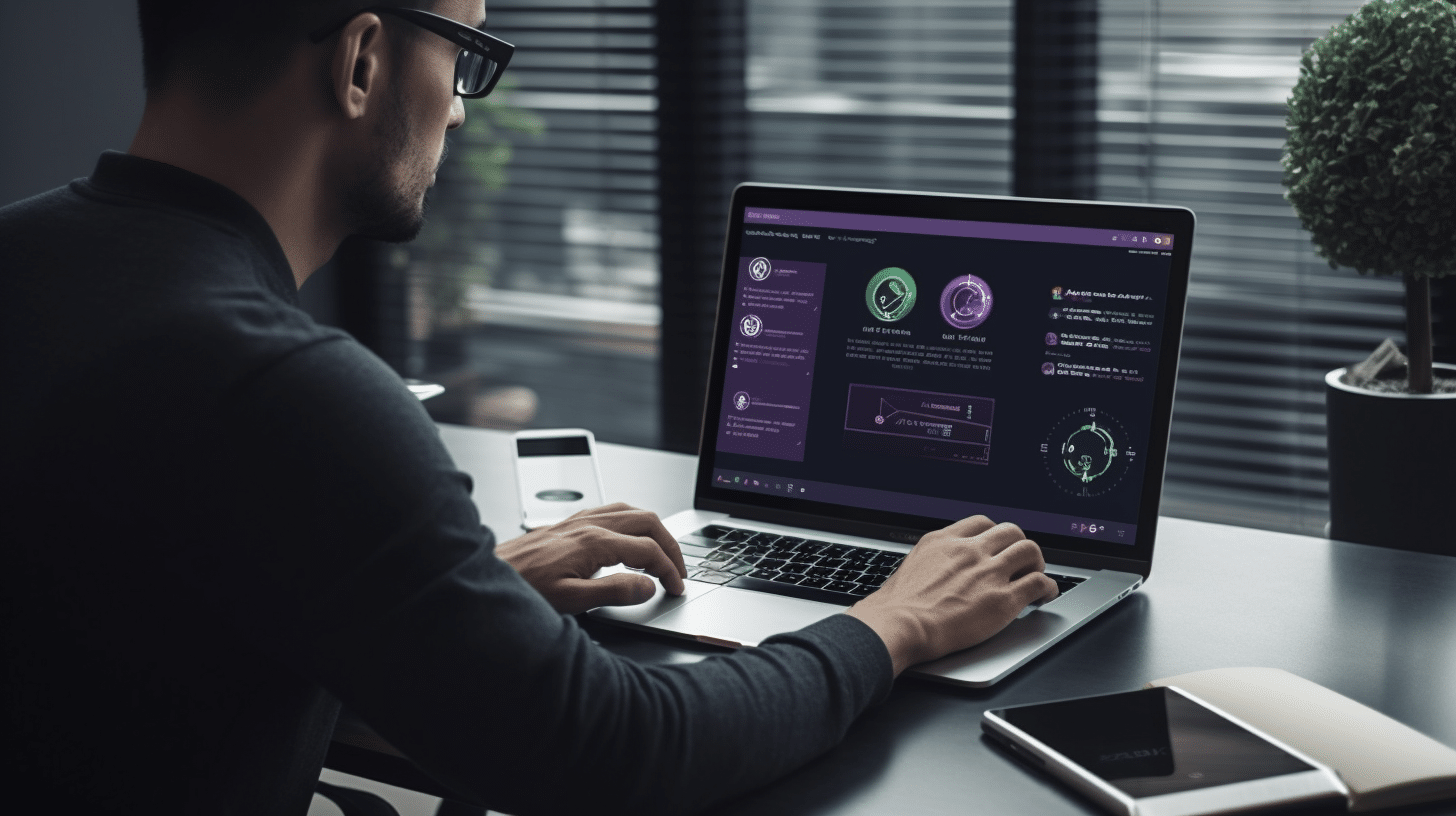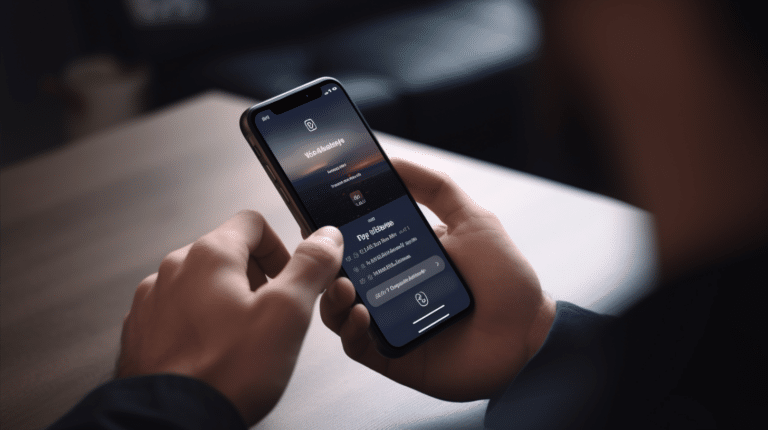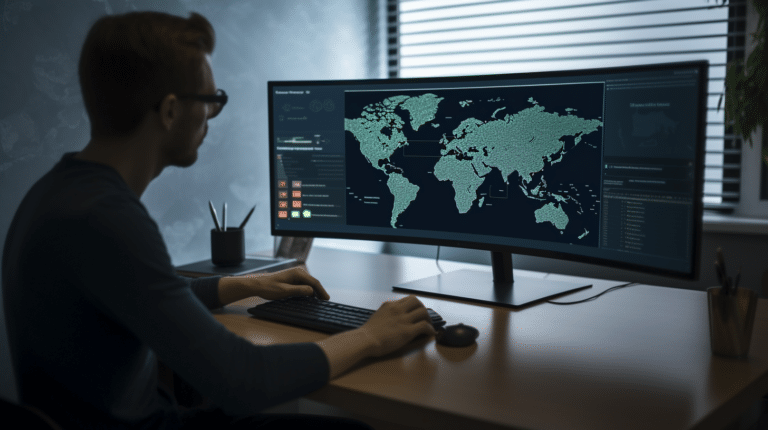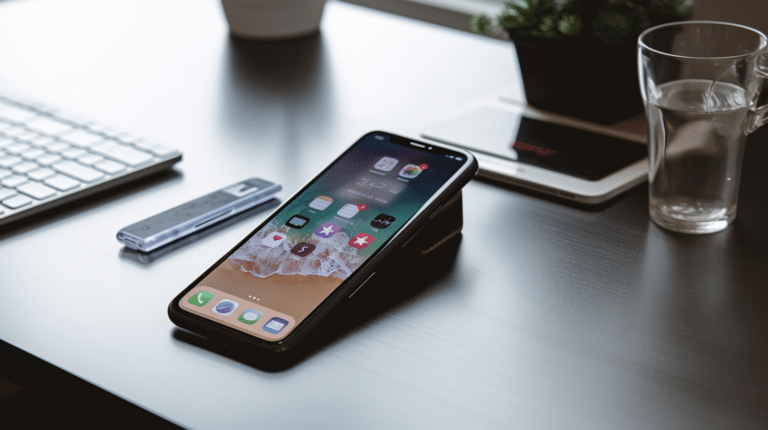Virtual private networks (VPNs) have become increasingly popular as a means to protect online privacy and secure internet connections. These networks encrypt data and reroute internet traffic through their servers, shielding information from potential hackers, data thieves, or nosy Internet Service Providers (ISPs). However, a common concern among users is whether a VPN consumes data and affects their allotted data limits.
To understand how a VPN uses data, it’s important to first grasp the functioning of the encryption process. VPNs rely on protocols such as OpenVPN, IKEv2, or L2TP/IPsec – each of which has different levels of encryption, speeds, and data usage. The encryption and rerouting of internet traffic inevitably result in some additional data consumption, which typically ranges from 5-15% more than it would without a VPN. However, this amount is relatively small when compared to the numerous benefits provided by VPNs.
Key Takeaways
- VPNs do use data, with usage differing based on the encryption protocol employed
- Additional data consumption usually ranges from 5-15%, but the privacy benefits outweigh this
- Users should carefully consider VPN providers for the optimal balance between data usage, security, and performance.
Understanding VPN and Data Usage
A Virtual Private Network (VPN) is a secure and private way to access the internet by routing your connection through an encrypted network. Using a VPN helps protect your privacy while online, and can hide your browsing activity from internet service providers (ISPs) or other parties.
One common concern when using a VPN is its impact on data usage. Indeed, a VPN does use data. The additional data mainly comes from the encryption process required to secure your connection. The encryption protocols used by VPN providers can lead to an increase in data usage, which typically ranges from 5-15%.
VPN data usage is relevant for both regular internet browsing and activities on smartphones or tablets. However, it is especially important when using cellular data, as the extra data consumed by the VPN can have an impact on your data plan limits.
The strength of the encryption used by a VPN is a significant factor in determining the amount of data consumed. Some VPN providers offer multiple encryption options, including the choice between lighter encryption methods that consume less data and more robust encryption methods for better security. Balancing the need for privacy and data usage can be a personal decision based on factors such as the security level required or the amount of available data on your plan.
Overall, the benefits of using a VPN, such as increased privacy and security, often outweigh the slight increase in data usage. Bear in mind that different VPN providers may consume varying amounts of data, and it’s crucial to research your options before selecting a provider that suits your needs.
In summary, while VPNs do consume more data due to encryption, the additional usage is generally minimal and not a significant concern for most users. The peace of mind provided by the secure and private browsing experience offered by a VPN typically offsets any concerns about increased data usage.
How Does VPN Consume Data
A VPN, or Virtual Private Network, allows users to establish a secure connection to another network over the internet. This is done by creating an encrypted tunnel between the user’s device and the VPN server. Due to the encryption process, a small amount of additional data is used when connected to a VPN.
The extra data usage can be attributed to the encryption process, which secures the data being transmitted. Depending on the encryption protocol the VPN provider relies on, data usage generally increases by an estimated 5-15% 1 . For example, downloading a 3GB file without a VPN may result in a data usage of 3GB, while using a VPN could lead to a data usage of 3.3 to 3.5GB 2 .
However, the actual amount of data consumed by the VPN varies based on your online activities and the specific VPN server you are using. The type of data being transmitted, such as text, images, or videos, also affects the data usage.
Furthermore, VPNs are compatible with various types of connections, including cellular data 3 . When using a VPN on cellular data, the same rules regarding data usage apply as when using it over Wi-Fi.
In summary, a VPN does consume data, but the increase in data usage is relatively minimal compared to the security and privacy benefits offered by the encryption process. Additionally, VPNs can be used over different connections, and data usage depends on several factors such as encryption protocols and user activities.
Does a VPN Use More Data?
When using a VPN, it’s important to understand how it may affect your data usage. VPNs provide added security and privacy benefits by encrypting your internet traffic. However, this encryption process can result in additional data consumption.
Typically, a VPN will cause an increase of 5-15% in data usage due to the encryption overhead. This increased usage depends on the encryption protocol employed by your VPN provider. Despite the added data usage, the benefits of using a VPN, such as enhanced privacy and security, often outweigh the small increase in data consumption.
It’s important to note that using a VPN will also count against your data limits on devices like smartphones or tablets. Mobile data consumption can be a significant concern for users with limited data plans, making it crucial to monitor your usage closely while connected to a VPN.
In terms of bandwidth, VPN usage does not generally have a significant impact on the overall speed of your connection. While there may be a slight decrease in speed due to encryption and routing processes, it is usually not noticeable for most users. Moreover, some VPN providers offer features such as compression to help reduce data usage and improve connection speeds.
In summary, using a VPN does result in a slight increase in data usage due to encryption overhead. However, this increase is generally minimal and should not deter users from taking advantage of the security and privacy benefits a VPN provides. Monitoring data consumption and choosing the right VPN service can help minimize the impact on your data usage and ensure a seamless online experience.
Impact on Your Data Plan and Speed
When using a VPN, it can have an impact on both your data plan and the speed of your internet connection. A VPN does use data, as it encrypts your network queries and transfers them through a different DNS server. This additional data consumption usually falls within the range of 5-15% 1.
The potential increase in data usage can affect you if your ISP or cellular service provider has imposed a data cap on your plan. In such cases, monitoring your data usage becomes crucial, especially while downloading large files or streaming videos.
As for the internet speed, several factors could lead to a slowdown when using a VPN, such as server load and physical distance from the VPN server 4. Server load can cause latency if a high number of users are connecting to the VPN server simultaneously, leading to an overload of requests.
Moreover, the physical distance between you and the VPN server might also affect the connection speed. The farther away the server, the more time it takes for data to travel, potentially reducing the overall speed of your connection.
Throttling, another factor that impacts speed, is a tactic employed by some ISPs to limit the bandwidth allocated to specific users or during specific times 3. A VPN can help bypass throttling in many situations by masking your connection from the ISP, making it difficult for the service provider to detect the actual nature of your data usage.
In summary, while a VPN can provide various security benefits, it may also have an impact on data usage and internet speed. Taking these factors into account when choosing a VPN can help ensure a smooth and efficient internet experience.
Streaming and Downloading with a VPN
When using a VPN for streaming services like Netflix, it is essential to understand how it impacts your data usage. As you connect to a VPN, it encrypts your internet traffic, which can increase your data consumption. This overhead is especially noticeable when downloading movies, playing games, or watching high-quality videos, such as HD or 4K content. The additional data usage is mainly due to encryption and the transfer of data through the VPN server, which adds extra bandwidth consumption1.
Despite the increased data usage, many users still prefer using a VPN while accessing streaming services. One of the primary reasons is to bypass geographical restrictions on content, making it possible to enjoy movies and TV shows that may not be available in their region4. Moreover, a VPN can also help maintain your privacy and protect your streaming activities from ISPs and other third parties.
When it comes to gaming, using a VPN can introduce latency due to the extra hop between your device and the VPN server. However, selecting a VPN provider with servers close to your location or the game server can minimize this effect. Additionally, a VPN can help protect against DDoS attacks and preserve your gaming experience by concealing your IP address1.
In summary, while using a VPN for streaming services and downloading content does indeed consume extra data, the benefits in terms of privacy, security, and accessing geographically restricted content make it a worthwhile option for many users.
Different VPN Protocols and Their Data Usage
When it comes to VPNs, there are various protocols available, each with its own data usage characteristics. By understanding these protocols, one can choose the most suitable option for their needs. Here, we’ll explore some of the major VPN protocols and their impact on data consumption.
- PPTP: is an older VPN protocol that is still in use today. However, it has been known to have security vulnerabilities. PPTP generally uses less data compared to other protocols, as it has lower encryption levels. This means it may be faster but is not recommended for highly secure online activities.
- OpenVPN: is a popular, open-source VPN protocol that offers strong security features. It uses AES-256 bit key encryption, 2048-bit RSA authentication, and a 160-bit SHA1 hash algorithm to protect user data. While OpenVPN provides a high level of security, it does lead to an increased data usage of about 5-15% due to the encryption process.
- L2TP/IPSec: combines the Layer 2 Tunnel Protocol (L2TP) with IPSec to provide an adequate level of security through encryption. This protocol is widely available and offers decent security. The data usage for this protocol is similar to OpenVPN, with an increase of roughly 5-15% due to the encryption process.
- IKEv2/IPSec: is another secure VPN protocol that is particularly well-suited for mobile devices as it can quickly reconnect when the device switches between Wi-Fi and cellular networks. It offers fast and secure connections, making it a reliable alternative for users who prioritize both speed and security. Its data consumption, like OpenVPN and L2TP/IPSec, falls into the 5-15% range due to encryption.
In conclusion, it’s crucial to remember that while all VPN protocols consume additional data, they do it for good reason – to provide the user with a secure and private connection. When selecting a VPN protocol, consider the trade-offs between security and data usage, and choose the one that best fits your requirements and online habits.
VPN Security and Data Privacy
VPNs are designed to enhance the security and privacy of your online activities. They achieve this by employing encryption technologies that secure your data while it is being transmitted across the internet. This means that even if someone intercepts your data, it will be unreadable due to the encryption applied by the VPN.
The primary component of a VPN’s security is the VPN server. When you connect to a VPN, your internet traffic is routed through one of these servers, masking your true IP address with a different one. This makes it difficult for others to track your online activities or pinpoint your exact location through your IP address. By choosing a reliable and trustworthy VPN provider, you can ensure that the VPN server you’re connecting to is secure and well-maintained.
However, not all VPNs are equal in terms of security and privacy. Some VPN providers may log certain information about your online activities, including your true IP address, which could pose a risk to your privacy. Therefore, it is essential to choose a VPN provider that has a strict no-logs policy and is transparent about their privacy practices.
In addition to these privacy measures, a good VPN service will also employ various security features such as strong encryption protocols. These protocols determine how your data is encrypted during transmission. Commonly used encryption protocols include OpenVPN, IKEv2, and WireGuard, which offer a high level of security and data protection.
To further enhance security, some VPNs also provide additional features such as kill switches and DNS leak protection. A kill switch automatically disconnects your device from the internet if the VPN connection drops, preventing any data from being transmitted unprotected. DNS leak protection ensures that your DNS requests, which translate domain names into IP addresses, are also routed through the VPN server, preventing potential leaks of your browsing data.
In conclusion, using a VPN can significantly improve the security and privacy of your online activities. By encrypting your data, masking your IP address, and connecting to secure VPN servers, you can protect yourself from threats posed by hackers, government surveillance, and other online risks. To ensure that your chosen VPN provides adequate security and privacy, it is crucial to research and select a VPN provider that offers robust encryption protocols, a strict no-logs policy, and additional security features.
Free vs. Premium VPNs and Data Use
When considering a VPN, it’s essential to understand the differences between free and premium options in terms of data usage. While both types of VPNs use data, some distinctions may impact your decision.
Free VPNs are often a popular choice due to their no-cost nature. However, they come with some caveats that may affect their overall data usage. Since these VPN providers do not charge a subscription fee, they need to find alternative ways to generate revenue. One of the methods is by monetizing user data, which can lead to privacy concerns. In addition, free VPNs may have limited server options and lower connection speeds, resulting in increased data usage if you experience buffering or need to reconnect frequently. For example, the once-popular no-fee VPN service Hola had some issues with customer bandwidth and botnets back in 2015.
Premium VPNs, on the other hand, provide a more robust and reliable service. By paying a subscription fee, users gain access to a vast network of servers and higher connection speeds, potentially reducing data usage. Premium VPN providers, such as ExpressVPN and NordVPN, prioritize privacy and dedicate resources to maintaining a secure and efficient network. They typically offer better data optimization, leading to reduced data consumption.
Moreover, premium VPNs invest in better infrastructure and encryption technologies, ensuring enhanced security and privacy compared to free alternatives. Paid VPNs also often come with handy features such as automatic server selection and kill switches to prevent data leaks.
In summary, both free and premium VPNs use data, but premium options may provide a more efficient service, resulting in lower data usage. The choice between the two may depend on your personal preferences, budget, and how much you value privacy and data optimization.
Affect of VPN on Mobile Device Data
Using a VPN on your mobile device has numerous benefits, such as maintaining privacy and bypassing geographical restrictions. However, it’s crucial to understand that a VPN does consume data. The VPN’s encryption process and connection to a remote server account for this additional usage, which generally falls within a 5-15% range of the original data usage 1.
Most mobile devices, whether Android or iOS, support VPN usage with the default settings. However, activating a VPN will count against the data limits set by your mobile provider. When you download a 3GB file with a VPN, for instance, your data usage could increase to 3.3 to 3.5GB due to the added encryption 4. This extra data consumption is important to consider when choosing a data plan with your mobile provider.
Data consumption in a VPN depends on the encryption protocol used by the provider. OpenVPN, for example, is a commonly used protocol that offers excellent security but may consume more data than other options such as WireGuard or IPsec. Therefore, choosing a VPN provider with an efficient encryption protocol can help lessen the impact on your mobile data usage 3.
A VPN can work on cellular data as well, and using one can provide more security when you’re away from Wi-Fi hotspots. However, keep in mind that the data consumption by your VPN remains the same, so it’s essential to closely monitor your data usage if you have a limited data plan 2.
In conclusion, it’s crucial to be mindful of your VPN’s impact on mobile device data regardless of whether you’re connected to Wi-Fi or using cellular data. By understanding this impact and selecting a VPN with an efficient encryption protocol, you can better manage your data usage and enjoy the benefits of a VPN without significantly affecting your data limits.
Navigating VPN with Data Caps
Using a VPN is an excellent way to maintain privacy and security when browsing the internet. However, it’s essential to be aware that VPNs do use data and can impact your data allowance, especially if you are on a limited data plan or using a cellular data connection.
VPNs work by encrypting your internet traffic and routing it through a secure server. This process adds a layer of protection, making it difficult for ISPs and other third-party entities to see your online activities. However, it also increases the amount of data being transferred, which can lead to increased data usage. In most cases, this increase is minimal, but it’s still important to consider how much additional data a VPN connection might consume when you’re working within a strict data cap.
To keep your data usage in check while using a VPN, try monitoring your data consumption regularly with the help of built-in features in your device or third-party apps. This will allow you to identify any significant changes in your data usage patterns and make adjustments as needed.
Another strategy for managing data usage with a VPN is to limit its usage to specific activities or times when privacy and security are most crucial. For instance, you might use a VPN when connecting to public Wi-Fi hotspots, accessing sensitive online accounts, or transmitting confidential information. By selectively using your VPN connection, you can conserve your data allowance while still benefiting from the extra layer of protection.
In conclusion, while VPNs do use data, they provide essential privacy and security benefits. By monitoring your data usage, and using your VPN connection judiciously, you can navigate the challenges of data caps and data limits while enjoying the advantages of a secure online experience.
Conclusion
Using a VPN does indeed result in data usage. When you connect to a VPN, your network queries are encrypted and transferred using a different DNS server. This encryption process increases data consumption by around 5-15%, according to various online reference tests.
It’s essential to be aware that a VPN’s data usage will count against the data limits on your smartphones or tablets. However, despite the extra data usage, VPNs offer numerous benefits, including increased privacy, security, and the ability to access more internet content.
In order to manage the data usage when using a VPN, it’s a good idea to monitor your data consumption regularly, especially if you have limited data plans. This way, you can stay within your allotted data limit and avoid any unforeseen charges.
Although a VPN adds some extra data usage due to encryption and tunneling, it remains a valuable tool for maintaining privacy and security in the online world. Understanding the data consumption and potential impact on your data plan will help you make informed choices regarding VPN usage and selecting the best VPN services to fit your needs.
Frequently Asked Questions
Does VPN consumption vary with usage?
Yes, VPN data consumption depends on different factors, such as the encryption protocol used by the VPN provider and the type of online activities you engage in. Typically, the extra data used doesn’t exceed the 5-15% range, which accounts for the encryption process.
Why do VPNs use more data than non-VPN connections?
VPNs use more data because they add an extra layer of security by encrypting your internet traffic. This encryption process requires additional data, which results in a slight increase in data usage compared to non-VPN connections. However, this extra data usage helps ensure your online privacy and security.
Is there a data limit on VPNs?
While VPNs themselves don’t impose data limits, your internet service provider (ISP) or mobile carrier might have data caps on their plans. Using a VPN will still count against these data limits. It’s essential to be mindful of your data consumption when using a VPN, especially on mobile devices with limited data plans.
How does VPN affect battery life?
Using a VPN can impact your device’s battery life, as it requires processing power to encrypt and decrypt data. This increased power usage can lead to faster battery drain. However, the effect on battery life will vary depending on your device and the efficiency of the VPN app you use.
Does VPN impact internet speed?
A VPN can potentially impact your internet speed due to the encryption and increased data usage. Furthermore, connecting to a VPN server located far away from your actual location might cause higher latency and slower speeds. However, reputable VPN providers work to minimize these effects, ensuring that any impact on speed is minimal.
Can VPN work on 4G networks?
Yes, a VPN can work on 4G networks, as well as other cellular data networks such as 3G or 5G. Connecting to a VPN while using your mobile data will provide the same privacy and security benefits as when using Wi-Fi. However, remember that your VPN usage will count against your mobile data plan limits.






